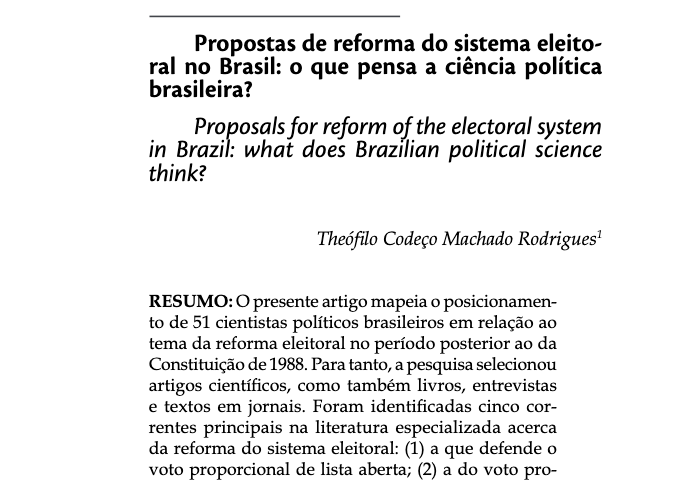
Activism and the Far Right in the Military: Tensions and Discourses Preceding Bolsonarism (1984-1998)
18 de February de 2022The Cataphoric Referencing: A PROPOSAL FOR CATEGORIZATION AND ANALYSIS
12 de July de 2022Proposals for Electoral System Reform in Brazil: What Does Brazilian Political Science Think?

The present paper maps the position of 51 Brazilian political scientists about electoral reform in the period that followed the 1988 Constitution. For this purpose, the research selected scientific articles, but also books, interviews and texts in newspapers. Five main streams were identified in the specialized literature on the reform of the electoral system: (1) the one that defends the proportional vote of the open list; (2) the proportional closed list voting; (3) the proportional vote of a flexible list, here also incorporated the model of “single transferable vote”; (4) the one that defends some type of majority vote; (5) and the one that seeks to mix proportional mechanisms with the majority in a system known as “mixed vote”. The paper concludes that the proportional system is preferred by most Brazilian political scientists who have intervened in the public sphere in the last twenty years, with a certain preference for the transition to the closed list model.KEYWORDS: Political Reform. Electoral System. Electoral Law. Brazilian Political Science.
Author: Theófilo Codeço Machado Rodrigues
Source: https://pos.direito.ufmg.br/rbep/index.php/rbep/article/view/879/648
